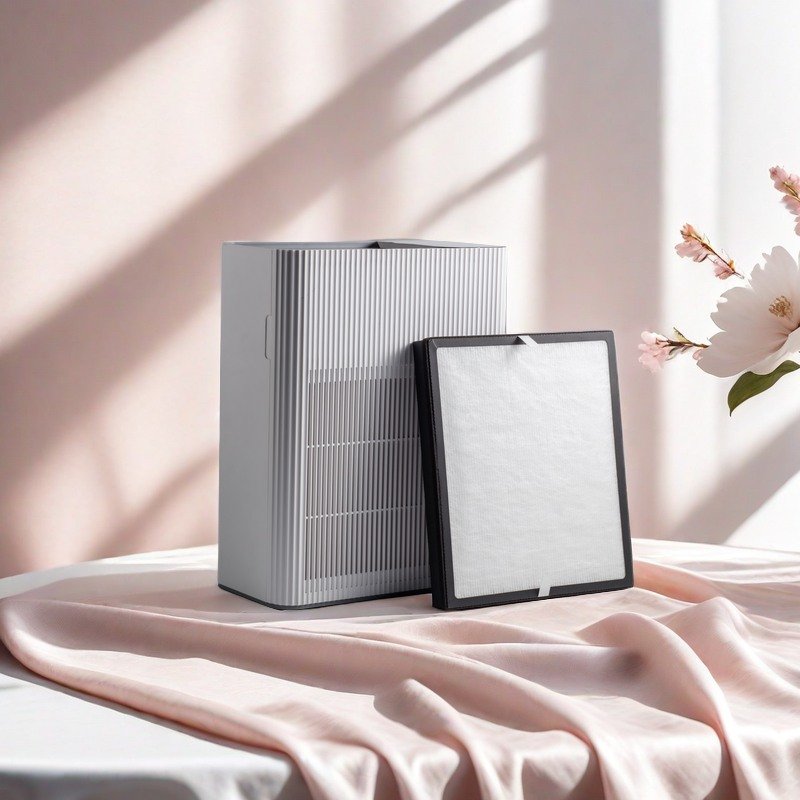
Airpurifier Related Problem is most common when it use for longer period of time.It is necessory to take small step to fix this problem here we discuss airpurifier related problem and its solutions so that our room,bedroom,office are get fresh and health air.our kids ,pets and our employee get benefit of fresh and healthy air around us.
See below Airpurifier Related Problem and their solutions
1. Air Purifier Not Turn On
One of the most frustrating problems with air purifiers is when they simply won’t turn on or operate. This can happen for several reasons:
Power supply issues: Check if the purifier is properly plugged into the outlet and that the socket is working. Ensure the cord is not damaged.
Fuse or circuit breaker: Some Airpurifier Related Problem have internal fuses that may blow, or your home circuit breaker may trip. Check these and reset or replace them if needed.
On/off switch problems: Sometimes, the purifier’s switch could malfunction due to wear and tear. If pressing the button doesn’t seem to work, you might need to replace the switch.
2. Reduced Airflow
If your air purifier is running, but the airflow is weak, it may not be cleaning the air as efficiently. This is usually due to clogged filters or blocked vents.
Dirty filters: Filters trap dust and debris over time, leading to reduced airflow. Make sure to regularly clean or replace your filters according to the manufacturer’s recommendations.
Obstructions near the vents: If something is blocking the intake or output vents, airflow can be restricted. Ensure there is nothing obstructing the purifier’s vents.
3. Unpleasant Odors From the Air Purifier
Airpurifier Related Problem meant to eliminate odors, but what if they start emitting unpleasant smells? That can occurs for a few causes:
Dirty filters: A dirty or old filter can produce a musty odor. Change the filter frequently to avoid this concern.
Bacteria buildup: In some cases, moisture inside the unit can promote bacterial growth, leading to bad smells. To avoid this, make sure the purifier stays dry and consider using antibacterial filters.
Plastic smell: If your air purifier is new, it may emit a plastic-like smell when first used. This usually fades after a few days of operation.
4. Unusual Noises
Airpurifier Related Problem are generally quiet appliances, but if yours is making unusual noises, it could indicate a problem. These noises might be rattling, buzzing, or even whistling.
Loose parts: Over time, parts of the air purifier might loosen, leading to rattling or buzzing sounds. Tighten any loose screws or parts.
Fan issues: If the fan is imbalanced or worn out, it may produce noise. Cleaning the fan or replacing it might be necessary.
Blocked air vents: A whistling sound can result from blocked vents. Ensure there’s no debris obstructing the air pathways.
5. Inconsistent Air Quality Improvements
Airpurifier Related Problem main reasons people buy air purifiers is to notice consistent improvements in indoor air quality. If you’re not seeing improvements despite running the unit regularly, there could be several factors at play:
Incorrect placement: If the purifier is in a corner or too close to walls, it may not circulate air effectively. Ensure the unit is placed centrally in the room with plenty of space around it for proper airflow.
6. High Energy Consumption
Some users complain that their air purifier consumes more electricity than they expected, leading to higher energy bills. While air purifiers are designed to run continuously, there are a few tips to minimize energy use:
Energy-efficient models: If you’re concerned about energy consumption, opt for models with an Energy Star certification or those labeled as energy-efficient.
Fan speed settings: Running the air purifier on the highest fan speed consumes more power. Consider using a lower speed for day-to-day operation and increase it only when needed.
Regular maintenance: Keeping your purifier in top condition helps it run more efficiently, thereby reducing energy consumption.
7.Uneffective to remove bad odour
If your air purifier isn’t eliminating odors as expected, this can be disappointing, especially for those dealing with smoke, cooking smells, or pet odors.
Carbon filters: Ensure your purifier is equipped with a carbon filter, as this is the most effective for removing odors.
Filter saturation: Carbon filters can become saturated over time and lose their effectiveness. Change it overtime as per given product manual guideline.
Room ventilation: Sometimes, a combination of air purification and natural ventilation (like opening windows) can help speed up odor removal.
8. Overheating Issues
It’s not uncommon for an air purifier to get warm during operation, but overheating can be a serious issue.
Blocked vents: As with airflow problems, blocked vents can cause the unit to overheat. Always ensure proper ventilation around the device.
Fan malfunction: If the fan isn’t working properly, the unit may overheat. Ensure the fan is clean and functional.
Excessive dust buildup: Dust inside the unit can cause it to overheat. Regularly clean the interior and exterior to prevent this.
9. Excessive Filter Replacements
Replacing filters too often can become an expensive maintenance issue. If you find yourself needing to change filters more frequently than expected, it could be due to:
Poor air quality: In areas with particularly poor air quality (e.g., heavy pollution or smoke), filters will clog faster. You might need to run the purifier less frequently or invest in more robust filters.
Incorrect filter installation: Ensure filters are installed correctly. Misaligned filters can cause air to bypass the filtering system, leading to inefficiency and more frequent replacements.
Filter type: Some filters are more durable than others. HEPA filters, for instance, often last longer than standard filters but might be more expensive.
10. Filter Replacement Indicators Not Working
Most modern air purifiers come with filter replacement indicators, but sometimes these indicators can malfunction, either showing incorrect replacement times or failing to alert you when needed.
Sensor issues: Dust or debris may block the sensor, causing it to malfunction. Cleaning the sensor could resolve this problem.
Software malfunctions: In digital models, a software glitch could prevent the indicator from working properly. Resetting the unit or updating its firmware (if applicable) might help.
11. Air Purifier Shuts Off Unexpectedly
An air purifier shutting off unexpectedly can be frustrating, especially if it happens frequently.
Overheating safety mechanism: Many air purifiers are equipped with an automatic shut-off feature to prevent overheating. If your unit shuts off frequently, it could be due to blocked vents, poor airflow, or a malfunctioning fan.
Faulty power supply: Check for any issues with the power cord, outlet, or internal wiring. A faulty power supply can cause the purifier to shut down unexpectedly.
Timer settings: Some air purifiers have built-in timers that automatically shut off the unit after a set period. Check the timer settings and adjust if necessary.
Closing Summary of all Airpurifier Related Problem
Air purifiers are expensive gadget for keep up hygienic indoor air, but like any device, they can face complication with years pass. By catch up and noticing these 11 air purifier related problem, you can ensure your airpurifier machine continues to work durable and capably. Regular take care, such as washing filters and see for dust clogged, can go afar in resolve many of these problem. Be active and chill the benefits of fresh, healthful air!

canadian mail order pharmacy